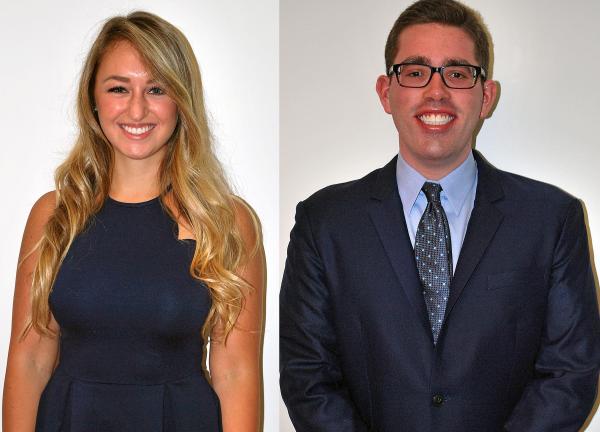Josh Liebowitz has an ambitious destination for his career path, which happens to run right through the Georgia Institute of Technology.
“It is my goal to be the CEO of a medical device company,” says Liebowitz, who earned an undergraduate degree in biomedical engineering and technology innovation (Boston University). “But I wanted to acquire a fundamental knowledge of the medical device industry from concept to commercialization.”
And that led him to Atlanta and the Master of Biomedical Innovation and Development program, or BioID, offered through the Coulter Department of Biomedical Engineering at Georgia Tech and Emory.
The program is designed to address a gap in current professional biomedical education – the bench-to-bedside progression that transforms research into practical, usable techniques and products for improving patient care.
BioID is an intensive one-year ride, exposing students to clinical practice, engineering design and development, best-practices manufacturing, financial planning, and commercialization – bringing together the strengths of a top-ranked engineering university (Tech) and leading medical school (Emory) with the expertise of guest lecturers from throughout the diverse healthcare industry.
“I knew that if I wanted to lead a medical device project or company, the BioID cross-functional exposure would be very helpful,” says Liebowitz, a 2017 BioID graduate. “I was drawn by [the Coulter Department’s] reputation as the best biomedical engineering program in the country and its intimate partnership with Emory. I really enjoyed the clinical exposure – observing surgeries and interacting with healthcare professionals.”
Following graduation, Liebowitz begins his career as part of the Johnson & Johnson R&D Leadership Development Program. For the next two years, he’ll work in the company’s medical device division, one of only six master level engineers in the country accepted into the competitive program.
So, it’s a rare honor and opportunity, but not the only one accorded to this year’s class of diverse BioID graduates. Recently, Elizabeth Coyle was among six Georgia Tech students, and only 10 nationally, selected to participate in the first Polish President Internship (May 24-June 4, 2017). The students spent 10 days traveling through Poland, visiting political and cultural sites in some of its greatest cities, as well as meeting with the president of Poland, Andrzej Duda.
Coyle was the only Georgia Tech student from the College of Engineering to win an internship. She graduated from the Catholic University of America (Washington, D.C.) with a degree in biomedical engineering.
But after the past year in Atlanta, Coyle says she has more confidence, and hopes to parlay the wide-ranging skills gained through the BioID graduate program into a career in the medical device industry (she’s currently interviewing for positions with some of the corporate giants, including St. Jude/Abbot, Medtronic, and Boston Scientific).
“From learning about R&D prototyping methods to learning about quality, regulatory, marketing, and business strategy, everything we learned is extremely applicable to the medical device industry,” says Coyle, who is from Cleveland, Tennessee. “I always tell people that I learned more in this one year of my graduate studies than I did in all four years of undergrad.”
CONTACT:
Jerry Grillo
Communications Officer II
Parker H. Petit Institute for
Bioengineering and Bioscience
Media Contact
Jerry Grillo
Communications Officer II
Parker H. Petit Institute for
Bioengineering and Bioscience
Keywords
Latest BME News
Jo honored for his impact on science and mentorship
The department rises to the top in biomedical engineering programs for undergraduate education.
Commercialization program in Coulter BME announces project teams who will receive support to get their research to market.
Courses in the Wallace H. Coulter Department of Biomedical Engineering are being reformatted to incorporate AI and machine learning so students are prepared for a data-driven biotech sector.
Influenced by her mother's journey in engineering, Sriya Surapaneni hopes to inspire other young women in the field.
Coulter BME Professor Earns Tenure, Eyes Future of Innovation in Health and Medicine
The grant will fund the development of cutting-edge technology that could detect colorectal cancer through a simple breath test
The surgical support device landed Coulter BME its 4th consecutive win for the College of Engineering competition.








